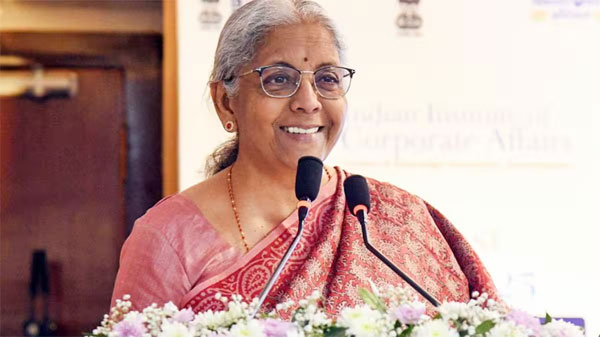Daijiworld Media Network - Chennai
Chennai, Sep 14: Union finance minister Nirmala Sitharaman on Sunday underscored the deepening impact of the Goods and Services Tax (GST) on everyday life, stating that the tax system now touches nearly every aspect of the average citizen’s routine — "from the moment people wake up to when they go to bed." Speaking at an event in Chennai, she highlighted recent reforms that have simplified tax structures, broadened the base, and brought tangible benefits to both consumers and businesses.
Sitharaman noted a significant expansion in GST coverage since its rollout. “Before GST, only about 66 lakh businesses were part of the tax system. Today, that number has grown to 1.5 crore,” she said, crediting the surge to greater transparency and streamlined compliance processes introduced by the government over the past eight years.

One of the standout reforms, she pointed out, was the rationalization of GST slabs. “Ninety-nine per cent of goods that previously fell under the 12 per cent slab are now taxed at just 5 per cent,” she announced, stressing that this move would directly lower input costs, ease production expenses, and bring down retail prices — benefiting the common consumer.
In response to concerns about complexity, the Finance Minister said that efforts over the past eight months have focused on refining tax classifications to eliminate confusion and reduce compliance burdens. This has encouraged greater participation not only from distributors but also manufacturers, contributing to a more robust and inclusive tax base.
Backing her claims with numbers, Sitharaman revealed that gross GST collections have tripled in recent years — rising from Rs 7.18 lakh crore in 2018 to Rs 22.08 lakh crore today. She emphasized that this increase has helped both citizens and state governments through improved revenue-sharing mechanisms and public spending.
Acknowledging past criticism of her role in implementing GST reforms, Sitharaman defended the government's approach. “Some may have said I only bring trouble, but we’re working for the nation. State ministers have been part of the GST Council since its inception, and all key decisions have been made collectively,” she asserted.
Through these statements, the finance minister reiterated the government’s stance that GST is no longer just a policy reform — it has become an integral part of India’s economic and social fabric, designed to drive affordability, transparency, and long-term development.